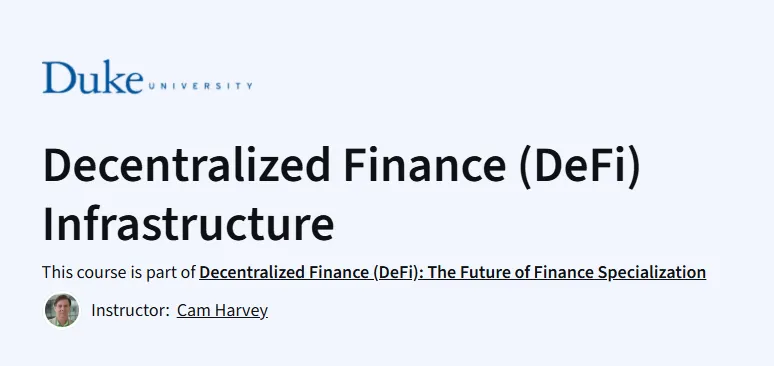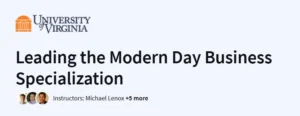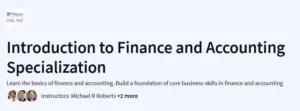Decentralized Finance (DeFi) Infrastructure
A technical deep dive into DeFi infrastructure that bridges blockchain theory with real-world decentralized protocols.
What will you learn in Decentralized Finance (DeFi) Infrastructure Course
Understand the technical infrastructure powering decentralized finance
Explore blockchain, smart contracts, and DeFi protocols
Learn how DeFi platforms differ from traditional financial systems
Analyze Ethereum, oracles, and token standards (ERC-20, ERC-721)
Evaluate risks, scalability, and interoperability challenges in DeFi
Program Overview
Module 1: Blockchain and Smart Contracts
⏳ 1 week
Topics: Public vs. private blockchains, immutability, consensus mechanisms
Hands-on: Examine smart contracts and deployment logic
Module 2: Ethereum and DeFi Architecture
⏳ 1 week
Topics: Ethereum Virtual Machine (EVM), gas, wallets, MetaMask
Hands-on: Analyze transactions and simulate gas costs
Module 3: Token Standards and Oracles
⏳ 1 week
Topics: ERC-20 and ERC-721 tokens, use of oracles in DeFi
Hands-on: Explore use cases of Chainlink and decentralized price feeds
Module 4: DeFi Protocols and Infrastructure Risks
⏳ 1 week
Topics: Liquidity pools, layer-2 scaling, governance risks
Hands-on: Case study evaluations of Aave, Uniswap, and Compound
Get certificate
Job Outlook
High demand for DeFi and blockchain-related roles in FinTech and Web3 startups
Roles include DeFi Analyst, Blockchain Developer, and Smart Contract Auditor
Salaries range from $70,000 to $180,000 depending on role and experience
Valuable skills for venture capital, crypto trading, and decentralized app development
- Focused on the technical layers of DeFi
- Explains token standards and smart contracts clearly
- Covers current platforms and use cases
- Not ideal for complete beginners
- Lacks hands-on smart contract coding
Specification: Decentralized Finance (DeFi) Infrastructure
|
FAQs
- No coding background is required to start.
- The course emphasizes concepts, protocols, and architecture.
- Hands-on tasks focus on using tools, not coding from scratch.
- Developers may still benefit from deeper technical context.
- Ideal for curious learners from both tech and finance backgrounds.
- It explains infrastructure, not trading strategies.
- Helps you understand how liquidity pools and tokens function.
- Improves awareness of risks like impermanent loss and hacks.
- Equips you to evaluate platforms before investing.
- Profitability still depends on market knowledge and risk management.
- Provides transferable financial literacy for fintech.
- Helpful for consultants, analysts, and regulators.
- Builds insight into Web3 adoption in banking and payments.
- Supports strategic decision-making in innovation teams.
- Strengthens your ability to advise on digital transformation.
- You’ll gain a clear view of the DeFi tech stack.
- Smart contract coding is not a major focus here.
- It gives foundational knowledge to pursue Solidity or Web3 dev courses later.
- Helps you design informed DeFi business models.
- You’ll be better prepared to collaborate with blockchain developers.
- Adds credibility in fintech, blockchain, and DeFi roles.
- Demonstrates initiative and technical curiosity on resumes.
- Equips you for analyst, strategist, or product-focused roles.
- A stepping stone to specialized careers like smart contract auditing.
- Works best when combined with coding, finance, or legal expertise.





